
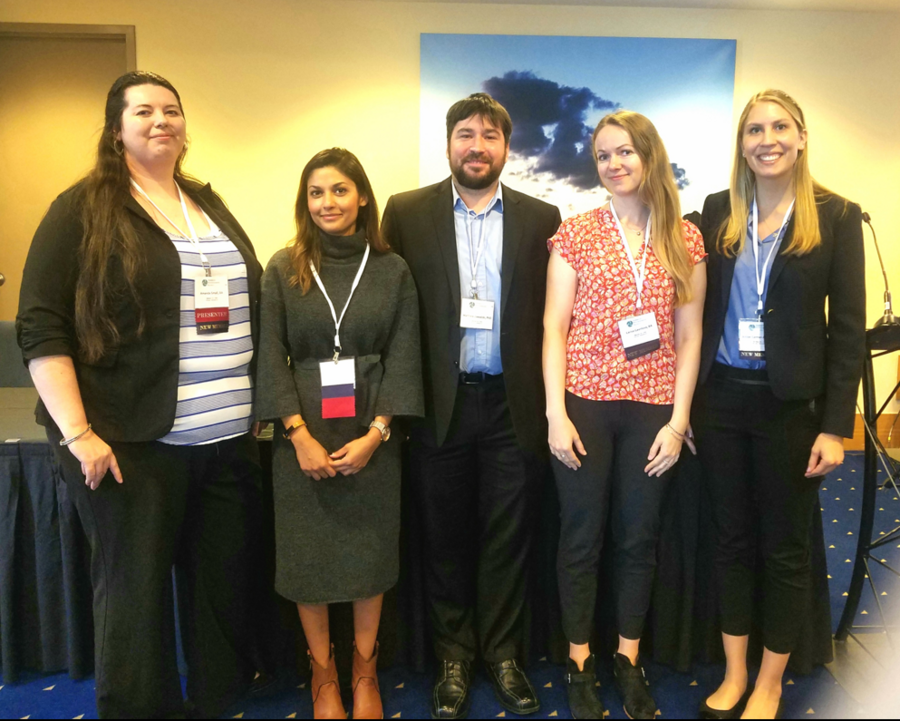
From left to right: Amanda, Maryam, Matthew, Larissa, and Amber.
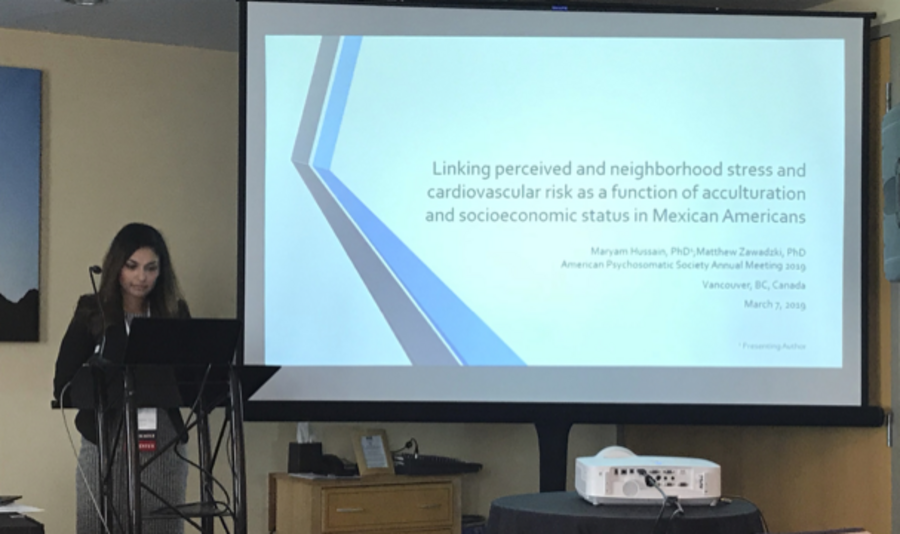
The Latino health paradox suggests that some Latino groups have better health than other ethnic minority groups. Building from this, Maryam’s paper presentation showed that people who reported more stress had lower cardiovascular disease risk, and the interaction of acculturation and socioeconomic status moderated this relationship. These results highlight the importance of understanding stress as a product of the sociocultural environment when examining health among Latinos.
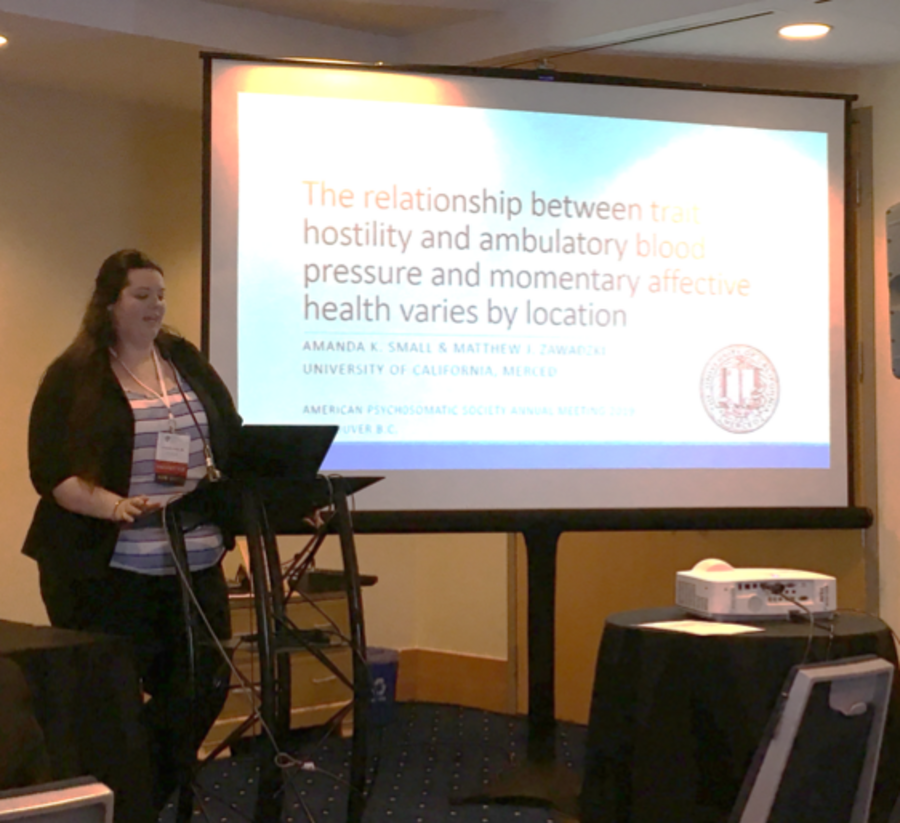
Mandy’s talk addressed the influences of the work environment for at-risk individuals. We found that when people who had high levels of trait hostility were in a work environment their blood pressure and negative emotions were higher compared to other environments. These findings suggest that work might be a particularly vulnerable place for some at-risk individuals and they also reveal a key environment to consider for future interventions efforts.
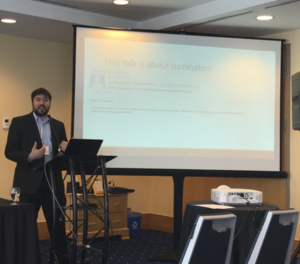
Matthew examined whether rumination is bad for health comparing the trait tendency to ruminate to momentary experiences of rumination. Results indicated that those who ruminated more in general (trait) had higher blood pressure, but they also had lower blood pressure in moments when they actually ruminated (state). These findings suggest rumination might be used as a coping resource in the moment, but with longer term negative health effects.
Zawadzki, M. J. (March 2019). Is rumination bad for your health? Comparing trait and momentary assessments of rumination on ambulatory blood pressure. Paper presented at the annual meeting of the American Psychosomatic Society, Vancouver, BC, Canada.
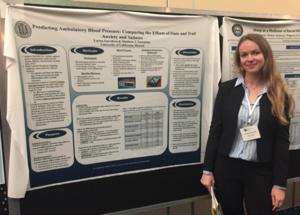
In this study, Larisa investigated the link between anxiety and sadness and ambulatory blood pressure (ABP) in everyday life. She found that momentary anxiety and accumulation of anxiety over multiple 24-hour periods were the most consistent predictors of ABP, whereas trait anxiety was a poor predictor across all models. Sadness was not a significant predictor of ABP. These results suggest that anxiety should be given attention as a potential risk factor for hypertension and highlight a unique perspective of the within-person level in understanding the dynamic relationship between emotions and physiology.
*The poster was selected for presentation as a citation poster.
Gavrilova, L., & Zawadzki, M. J. (March 2019). Predicting ambulatory blood pressure in everyday life: comparing the effects of state and trait anxiety and sadness. Paper presented at the annual meeting of the American Psychosomatic Society, Vancouver, BC, Canada.




